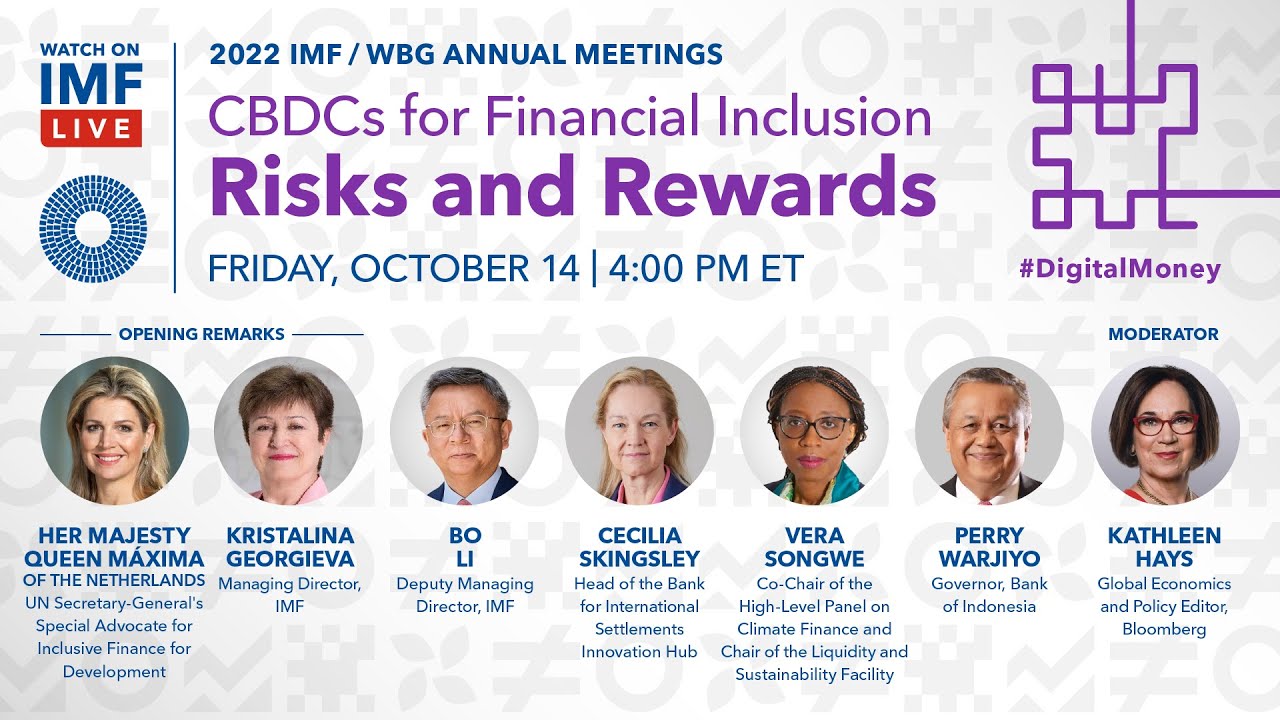This is exactly what it does, and the people perpetrating this see it as a feature, not a bug. It is potentially the greatest means of fine-grained surveillance and control by rulers over a populace ever invented.
Two days ago, on 2022-10-14, the International Monetary Fund held a powwow in Washington, DC to discuss “Central Bank Digital Currencies for Financial Inclusion: Risks and Rewards”. Here is a clip from the event. The speaker, Bo Li, is the Deputy Managing Director of the International Monetary Fund, discussing the “programmability” of central bank digital currencies (CBDC) and what this means for their issuers.
So who is this “Bo Li” dude? Well, before coming to the IMF in August, 2021, he was deputy governor of the People’s Bank of China and
Li holds a PhD from Stanford University and an MA from Boston University, both in economics. He also holds a JD, magna cum laude, from Harvard Law School. Li studied at Renmin University of China for his undergraduate degree in Beijing.
China is the pioneer in the Social Credit system, which is already largely rolled out through their wireless payment system, even before the introduction of a CBDC.
There are various punishments for low trustworthiness. As of June 2019, according to the National Development and Reform Commission of China, 26.82 million air tickets as well as 5.96 million high-speed rail tickets had been denied to people who were deemed “untrustworthy(失信)” (on a blacklist), and 4.37 million “dishonest” people had chosen to fulfill their duties required by the law. Delinquent debtors are placed on blacklists maintained by Chinese courts and shared with the Ministry of Public Security which controls the country’s entry-exit checkpoints. Individuals with outstanding debts can be subject to exit bans and prevented from leaving the country as a way of encouraging or forcing the collection of debt. According to the Financial Times, as of 2017, some 6.7 million people had already been placed on blacklists and prevented from exiting the country as a result of the new policy. In July 2019, additional 2.56 million flight tickets as well as 90 thousand high-speed train tickets were denied to those on the blacklist. If the parents of a child were to have low enough social credit, their children would be excluded from the private schools in the region or even national universities. A person with a poor social credit may be denied employment in places as banks, State-owned enterprises, or as a business executive. The Chinese government encourages checking whether candidates names’ appear on the blacklist when hiring.
Economists of the totalitarian bent have also been gushing over the prospect of money that “rusts”—where the balance in CBDC erodes over time at a rate determined by the central bank, obtaining all the benefits of inflation for the state without a rising price level to bring out the torches and pitchforks.
This is why the coming battle between Bitcoin and other decentralised, non-inflationary currencies versus CBDCs is a central arena in the struggle for liberty in the next decade.
Here is the entire IMF conference. The clip about “programmability” starts at the 19:50 mark.
